Sourcing speciality coffee
Direct coffee sourcing from Costa Rica, Rwanda, Kenya and Brazil
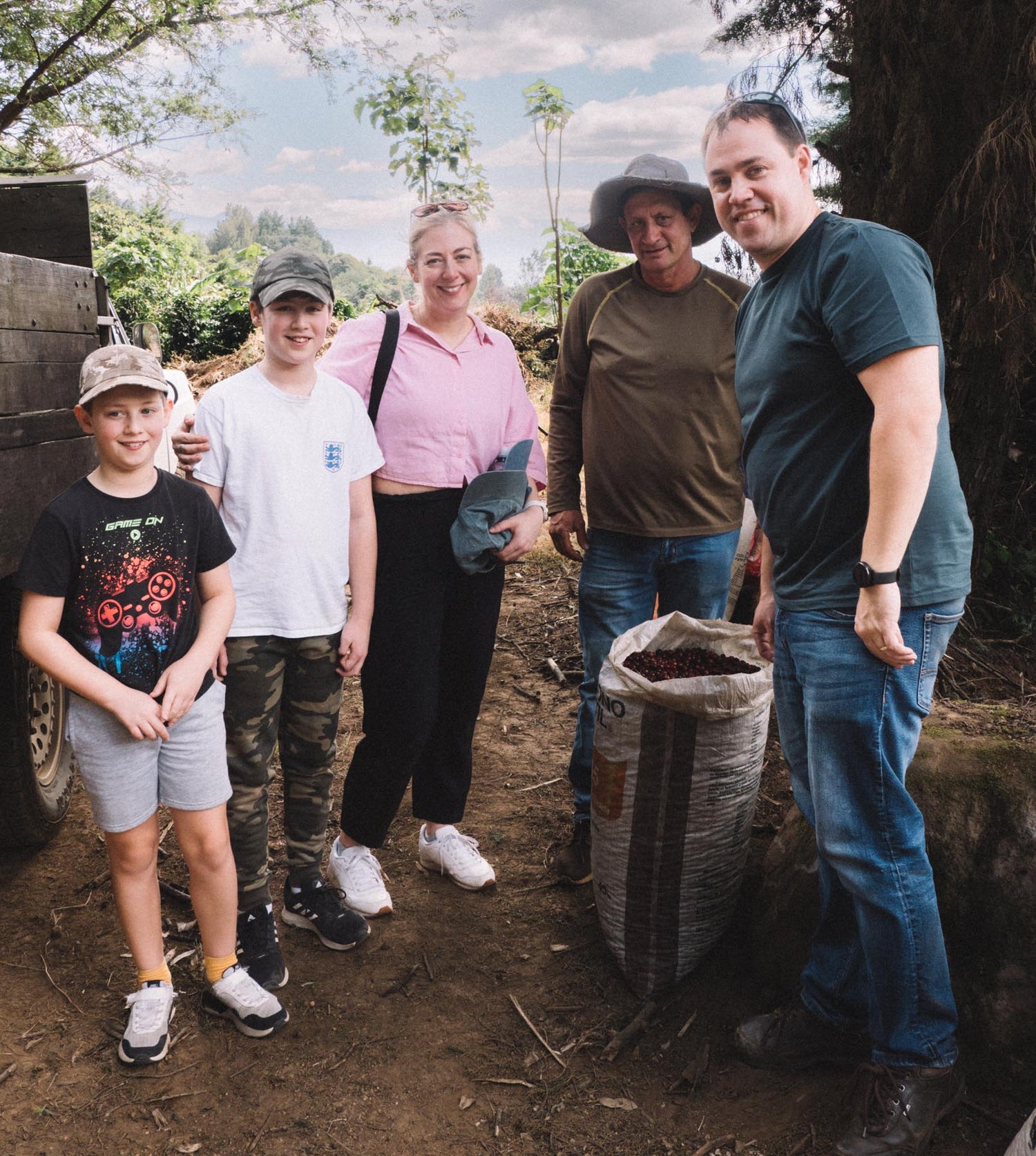
Our approach to sourcing coffee
We pride our approach to sourcing specialty grade green coffee around the world focusing on developing long term, direct relationships. This means working directly with producers at the time of harvest to plan our core coffees throughout the year. We aim to ensure ethical transparency in working practices with the producers we work with and our aim is to make sure that we invest in long term relationships with these producers. Some of our relationships in Rwanda have been on going for more than 8 years.
We practice science-based quality control on the coffees we buy to ensure we are working with only speciality grade (i.e. the best quality) coffees. We focus on the seasonality of the coffees we buy to ensure that we are bringing our customers the world’s freshest crops available. Speciality coffee is defined as coffees scoring 80+ on the SCA and CQI score sheets and having no primary defect in the cup or green coffee. We aim to source coffees scoring 84+ for all of our single origins.
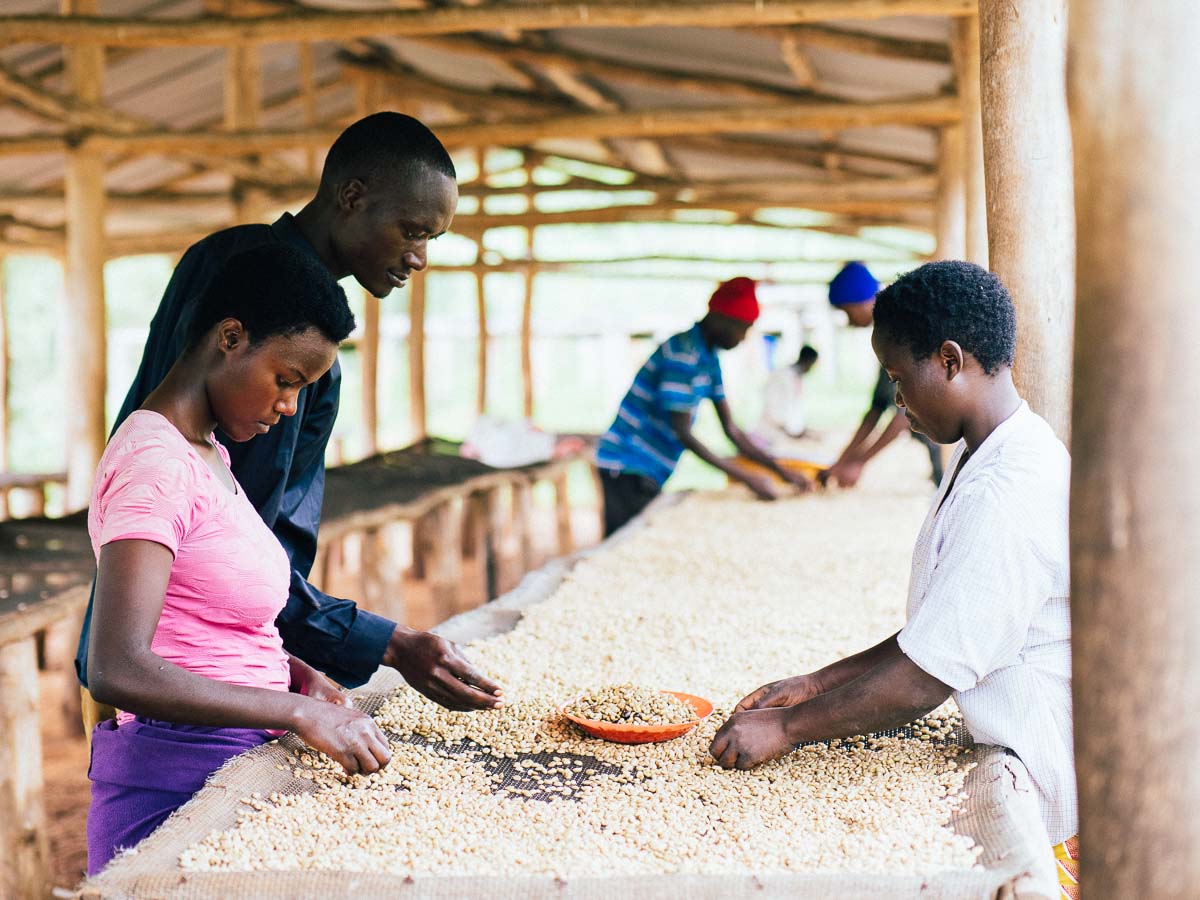
Direct trade coffees
We are committed to using a direct trade model in sourcing our coffee in order to ensure a fair and transparent price for coffee producers that is above and beyond the Fairtrade base price. Though we are fortunate in the U.K. to have numerous specialty coffee suppliers, our goal has always been to source coffee directly from origin so that we can work towards building sustainable, mutually beneficial relationships with coffee producing communities. We currently have directly links to producers in Rwanda, Costa Rica, Kenya and Brazil. Our other origins come from carefully selected suppliers who are dedicated to working directly with their partner producers.
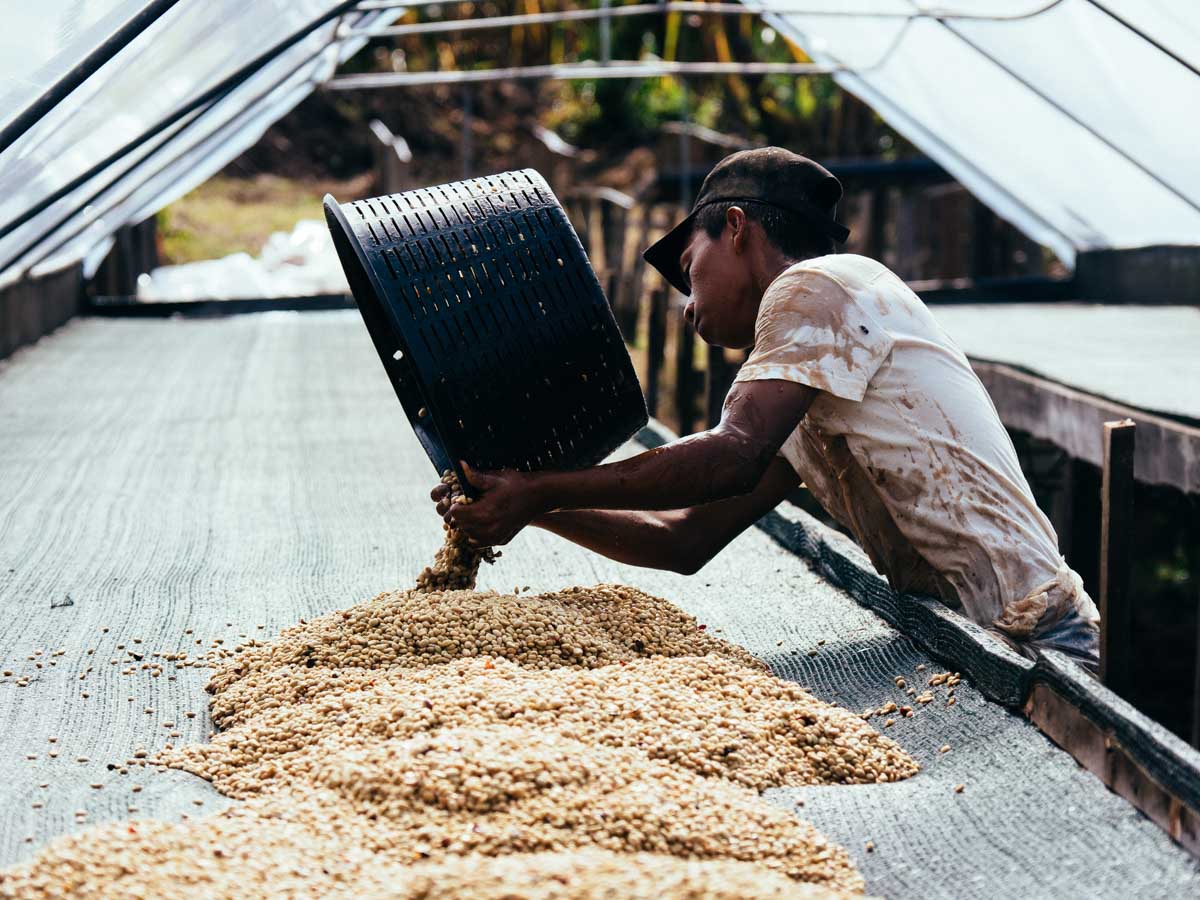
Relationship coffees
In 2017 we introduced the title ‘Relationship Coffee’ to signify which coffees we have obtained through these special relationships, but also to address some of the ambiguity attached to the term ‘direct trade’. It is not always clear who is responsible for the direct trade and although it is often used to signify a direct link with producers, in reality this link may involve three or four parties in between producer and roaster (e.g. farmer - washing station - exporter - importer - roaster). With this type of structure in place it can be very challenging for the roaster and coffee producer to make a direct connection.
Our relationship coffees come from producers that we have direct and open communication with and a commitment to a long lasting and sustainable working relationship. In Costa Rica some of the producers that we work with are very small. Direct relationships mean that they are able to produce great coffee knowing that we will be willing to support them year on year.
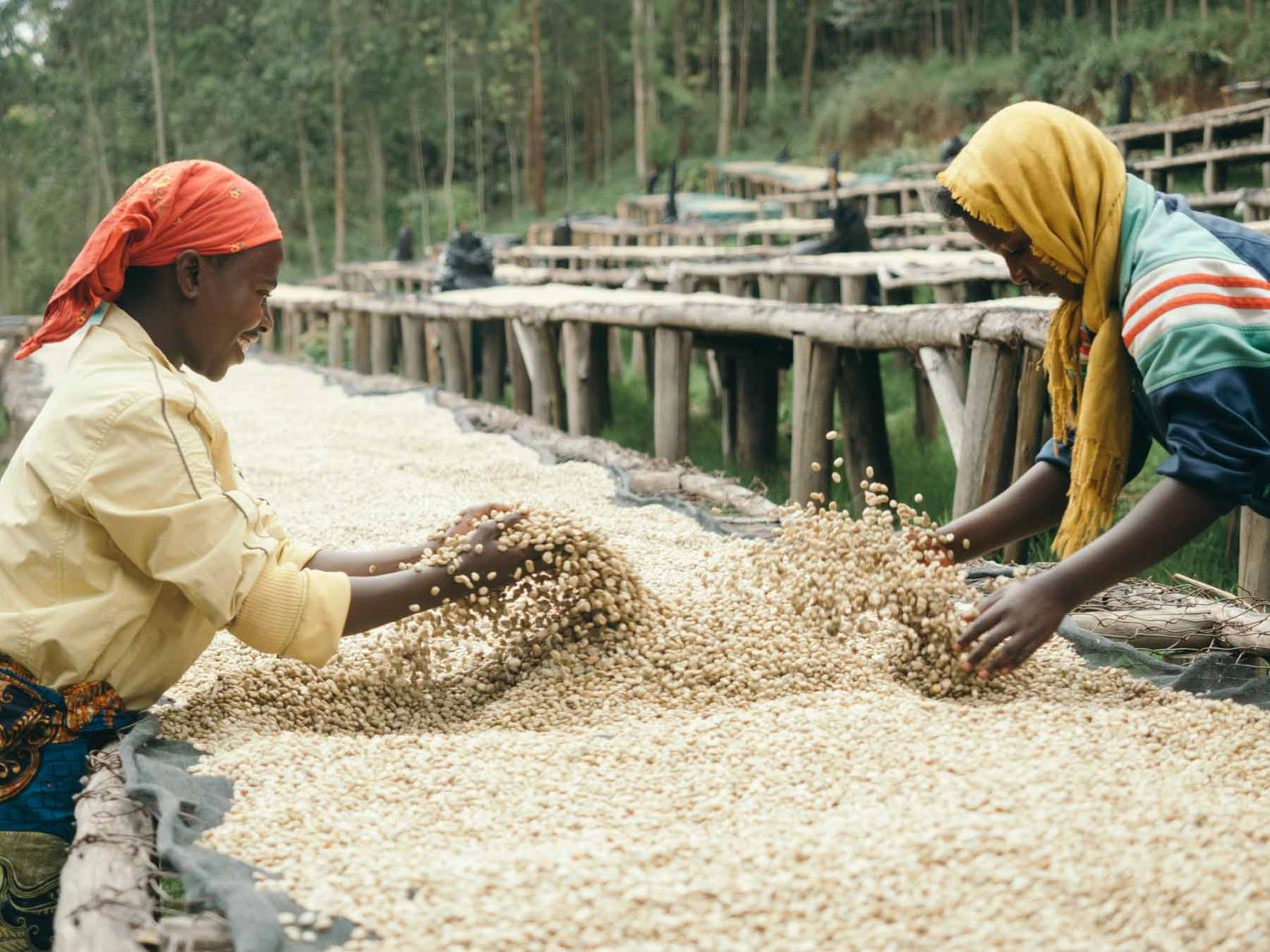
Rwanda coffee sourcing
In May 2015 we started sourcing coffee directly from Rwanda following a visit to several washing stations. We visited Rwanda again in May 2016 and 2017 and are continuing to work with Gishyita washing station, a small co-operative located on the eastern shore of lake Kivu. Prior to the 2016 harvest we donated $1000 to the co-operative to help fund new facilities (flotation tanks, fermentation tanks and grading channels) which has enabled them to further increase the quality of the coffee that they are producing. In 2017 we completed a school repair project at the Shye school in Gishyita village. This involved significant repairs to the primary school building in order to provide a safe learning environment for the children of the village.
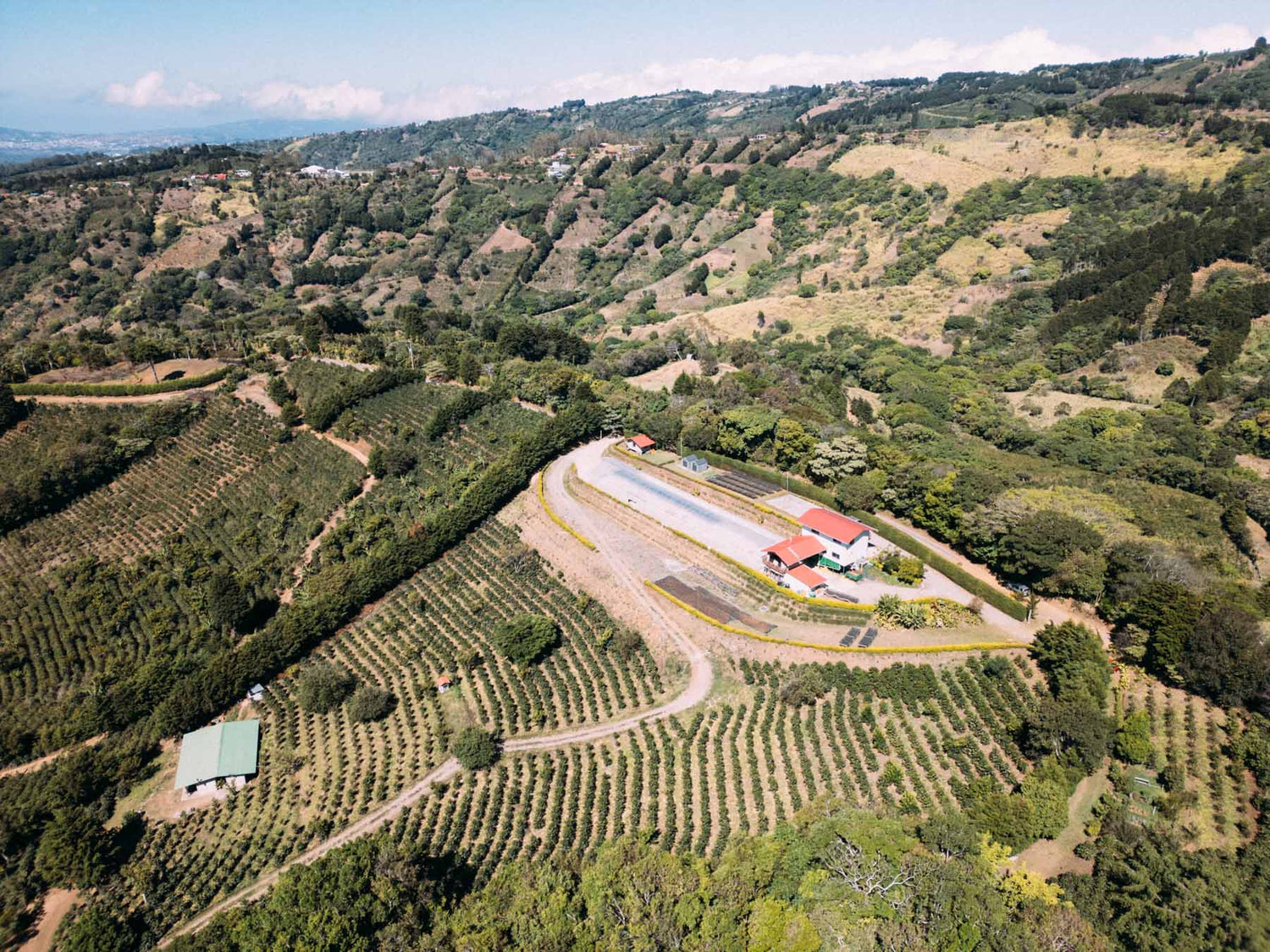
Costa Rica coffee sourcing
We first visited Costa Rica in February 2020 and developed some great friendships with producers and the small exporter, Selva Coffee. For the last four years we've been buying coffees from the same six producers. Some of them are very small with farms covering just a few hectares in size. This direct relationship means we have access to some of the best high cup score coffees produced in Costa Rica. Three out of the six producers have won cup of excellence awards in the last 3 years.
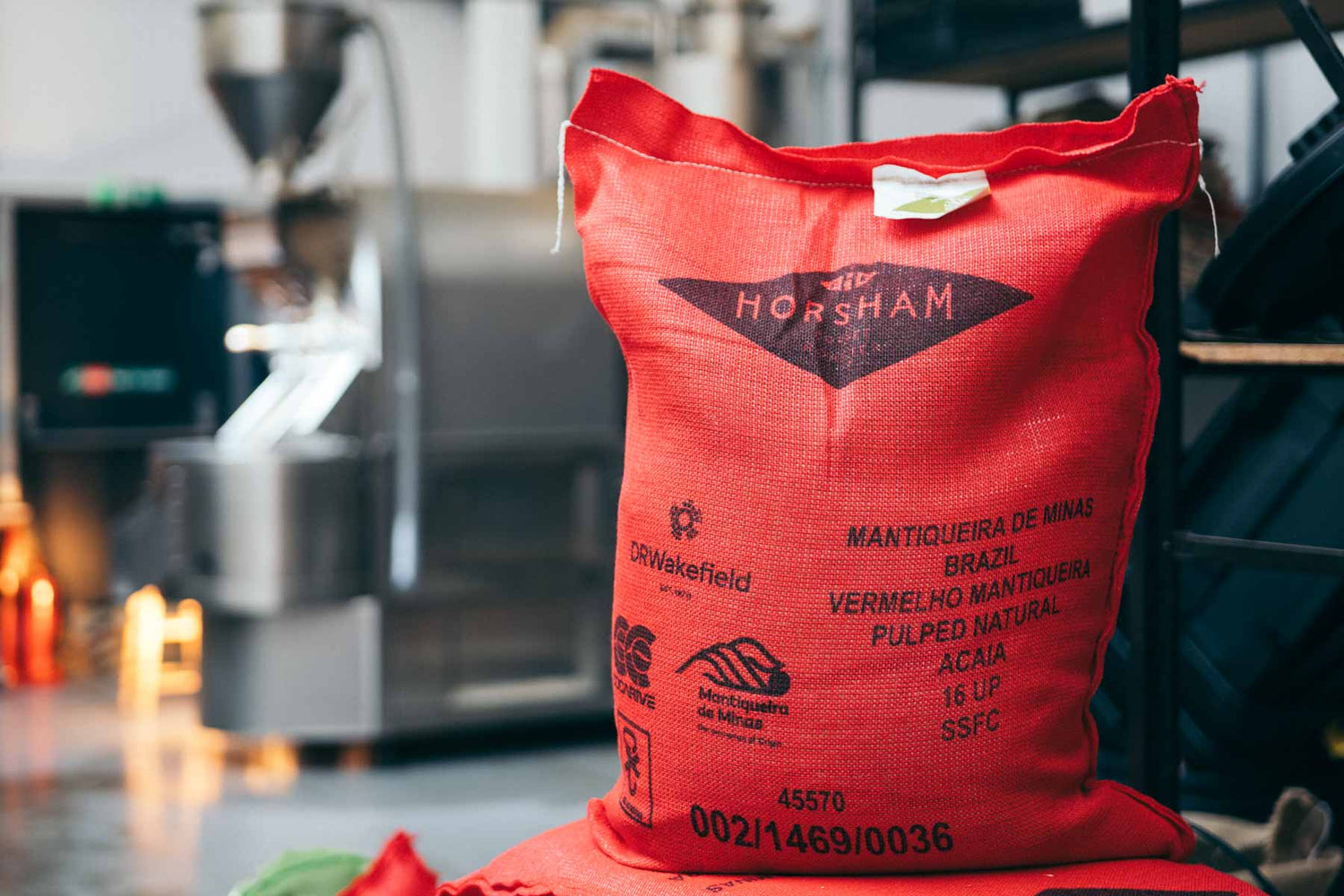
Seasonality and quality
Because coffee is a seasonal product our range of coffees changes over the course of the year, and we work very hard to ensure we serve coffees that are still fresh and seasonal. In addition to a strong focus on direct trade the quality of the coffee we purchase is paramount.
Improved quality means better prices for farmers so it is very important that we continue to support the producers that work hard to supply us with high scoring coffees. Our coffees are either packaged in sacks with grain pro liners or vacuum packed in boxes. These packaging methods project the coffee from early ageing and exposure to moisture and other potential contamination.
Recommended coffee
-

Single Origin Coffee Beans
Our single-origin coffee beans are always traceable to farms or co-operatives in...
-

Flexible coffee subscription
A flexible coffee subscription is a great way to make sure you never...
-

Coffee Blends
Our coffee blends bring together some of our favourite coffees from direct...

